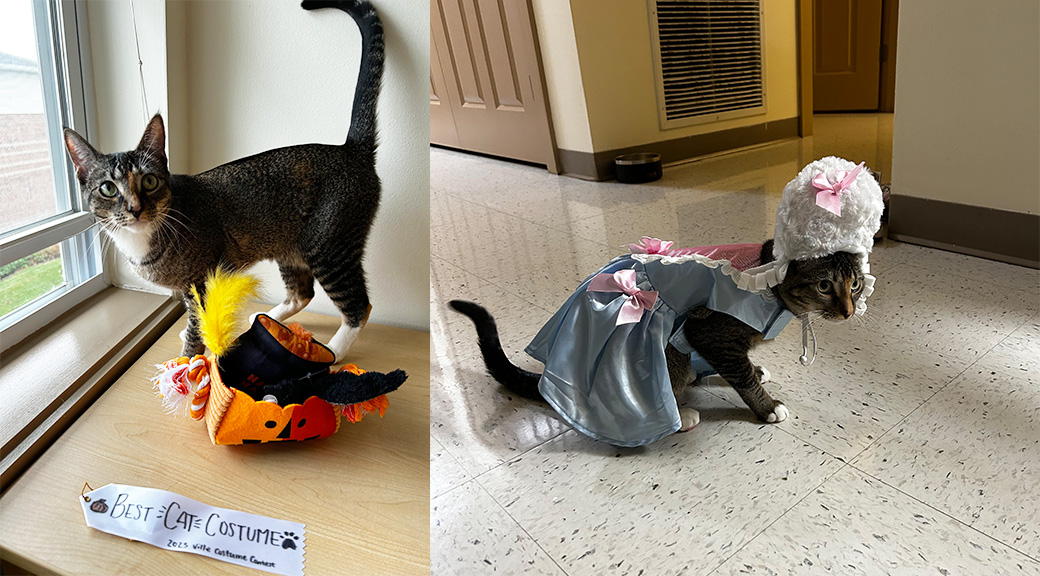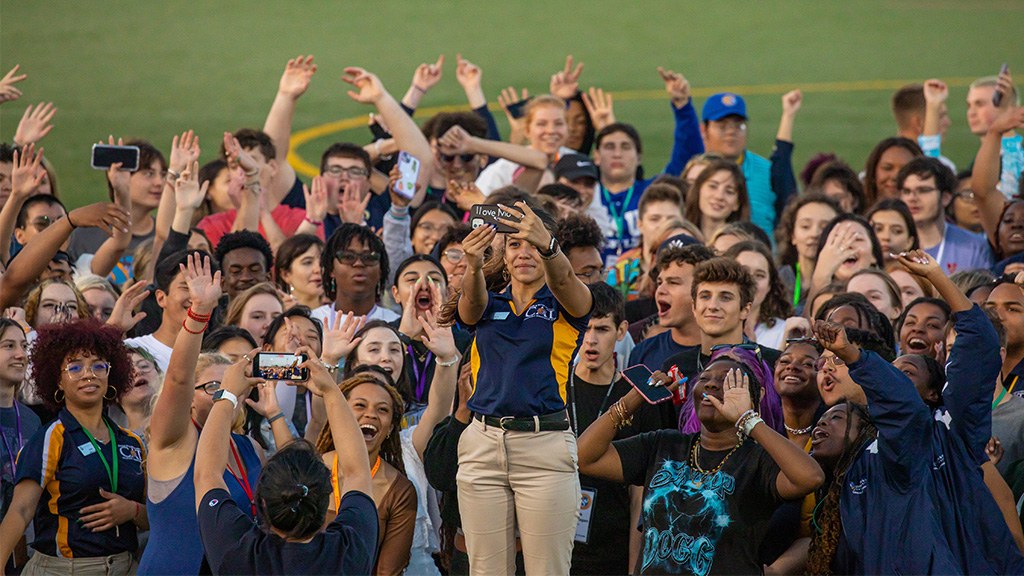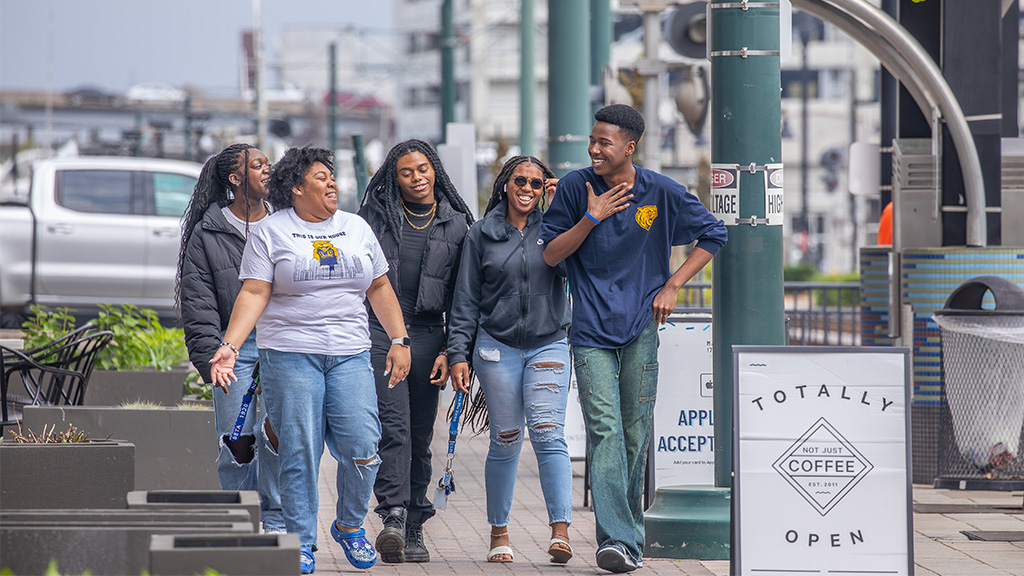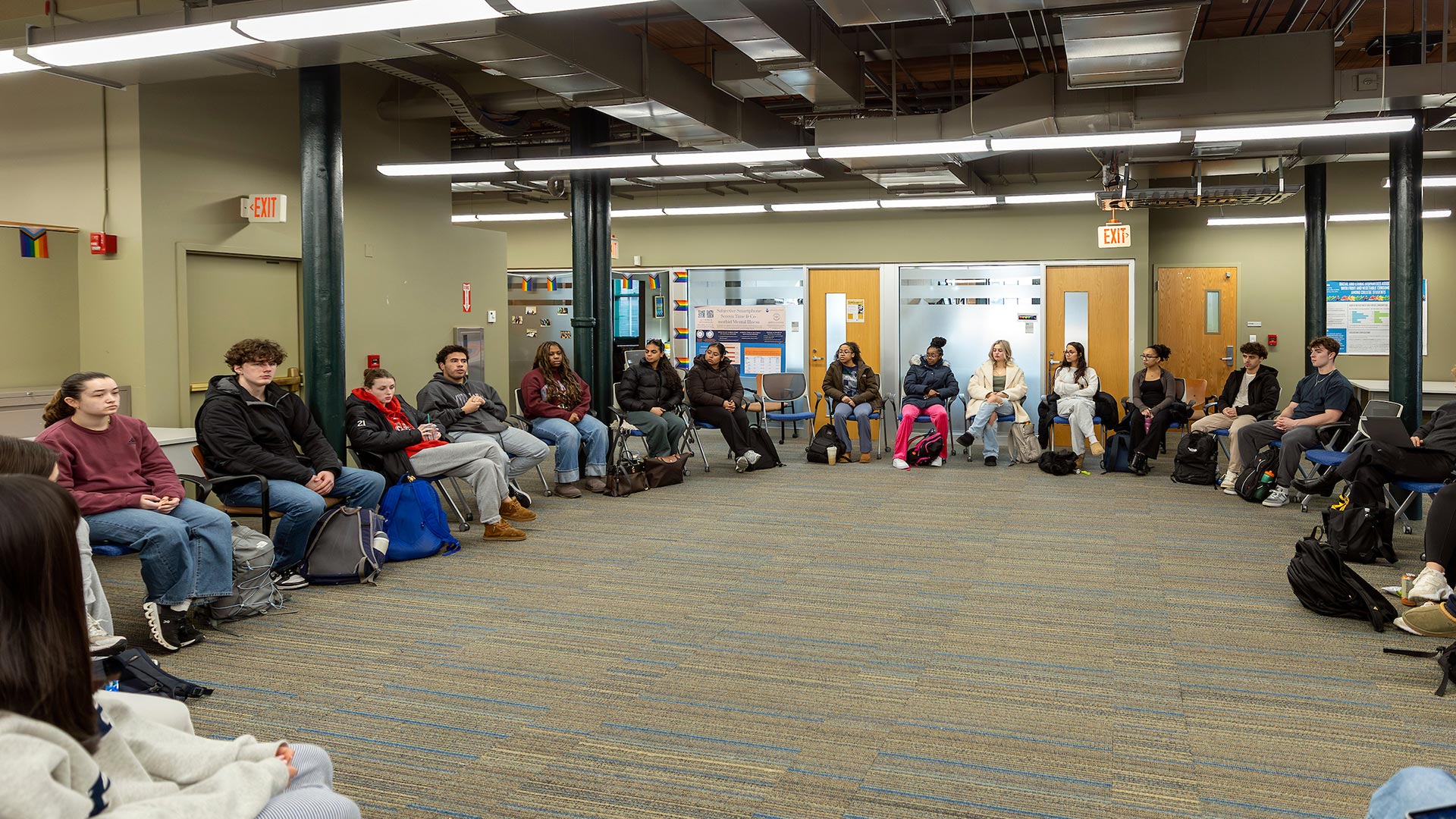6 Benefits of Living on Campus at JWU
Author Julia Shiels '24 is a Graphic Design major and works as a student assistant at JWU, contributing to JWU News.
I’m currently a senior at the Providence Campus who has spent all four years living on campus in JWU’s residence halls. I lived in McNulty Hall my first year, Snowden Hall my sophomore year and Harborside Village for the last two years. With all the benefits that come with living at JWU, I never felt the need to move off campus.
Students at the Charlotte Campus enjoy living on campus as well. Alijah Jamison ’24, a current JWU senior living on the Charlotte Campus, says, “I would definitely recommend campus living. Not only do you get to further your education while living with classmates and friends, but you get to live in a sought-after location of Uptown Charlotte. Safety is very important and when you have a safe and comfortable living environment, you are sure to excel in your education here!”
There are so many options for living on campus. Between the Providence and Charlotte campuses, there are 13 housing options, each with different amenities to fit your needs. Next year, Charlotte will be adding a third housing option to their campus. The Maple will be designed for upper classmen, with both doubles and single rooms that have private bathrooms. There will also be a new dining option available in this hall that will serve dinner and a late-night meal.
Aside from the great residence hall options, there are many other benefits to living on either JWU campus. With the help of Alijah, I’ve put together a list of six great reasons why you should call JWU your home!
1. There are many pet-friendly options.
My favorite benefit of living on campus is that I can bring my furry friend along with me. JWU offers multiple pet-friendly living options at both campuses, and there have even been special events tailored to our four-legged friends. Last October, Residential Life put on a pet costume contest which my cat, Piper, took part in — she took home Best Cat Costume award!

Seeing dogs around campus also makes it feel even more like a community. For many students, animals are a great stress-reliever — whether it’s having their own pet/ support animal with them on campus or meeting other students’ animals.
2. Classes are close by, and that saves you time.
If you’re like me, mornings are not your thing. One of the biggest perks about living on campus is that your classes are only a short distance away. This gives you time to get those vital extra minutes of sleep and time to fuel your day with breakfast. Besides being able to sleep in, having classes close to where you live is beneficial for those days you stay late to work on a project or if you forget something at home.
Living nearby is also helpful outside of the classroom. There are so many fun things to do on campus, and when you live here, they’re all close by. Evening club meetings are within walking distance and athletic games are right across campus for students to attend.
3. If something breaks, you can call JWU maintenance to repair it.
A big worry I had when moving to college was, “What if something in my space needs to be repaired?” Over the last few years, this has inevitably happened. Thankfully, JWU’s maintenance team is always there to help. Students submit a request on the jwuLink portal, and maintenance will be there within a day to help. The best part is that it comes at no extra cost — all repairs are covered.
4. The Residential Life team offers fun events for residents.
You never run out of things to do when you live on campus! Residential Life always hosts a variety of events for residents. Most recently, there was an Easter egg hunt in the Harborside Village. There’s also puzzle competitions, movie nights, DIY sessions, karaoke and so much more. It’s a great way to meet people in your community or have a fun bonding experience with your roommates!
Down in Charlotte, Residential Life also works hard to offer students plenty of things to do. “I have many resident assistant (RA) friends that are constantly putting together fun and engaging activities in the residential halls,” says Alijah. “These activities could be a scary movie night or pancakes and pajamas to take a much-needed break from studying. Living on campus taught me to fly the nest and to be my best independent self!”

5. When you live in the middle of a city, there’s always something to do.
Living on either of our city-based campuses means being within walking distance of many restaurants and shops. Right next to our Providence Campus is the Providence Performing Arts Center (PPAC). There are always a variety of shows playing, and enjoying a performance is a great activity to do with your friends! Plus, the PPAC often offers discounted rush tickets for students.
“In Charlotte, we are at the epicenter of all the fun that is happening in and around the city,” Alijah adds. “Our campus sits snug in between the Spectrum Center, which is home to the NBA Charlotte Hornets team; the Bank of America Stadium, which hosts NFL Carolina Panthers games and concerts; and Truist Field, home to the MiLB Charlotte Knights team. Truist Field is also the location for seasonal events like the annual pumpkin patch in October and ice skating during the holidays. Right now, the Charlotte fair is in town, which is always a wonderful time with friends. The event has great fair food and has dozens of rides to choose from. We also have an event that comes to town every spring called ‘Charlotte Shout.’ This event stays in Charlotte for several weeks and is a larger-than-life festival that highlights the Charlotte community through food, fun, music, and art."

6. No furniture? No problem — residence halls come furnished!
A common expense for young adults as they move away from home is furniture. Luckily, when you live on campus, every residence hall or apartment comes fully furnished. Every room comes with a bed, desk and chair, dresser and wardrobe (or a closet, depending on which residence hall you’re in) for each student.
In my apartment in Harborside Village, the living room is equipped with a sofa, accent chair, coffee table, side table and a console table. The kitchen has a dining table with four chairs and standard appliances, including a dishwasher. Village apartments also come with an in-unit washer and dryer.
Living on campus at JWU is a great transition from living at home with your family. It offers the best of both worlds because you can experience the freedom of living on your own while still having the support of living in a community.



